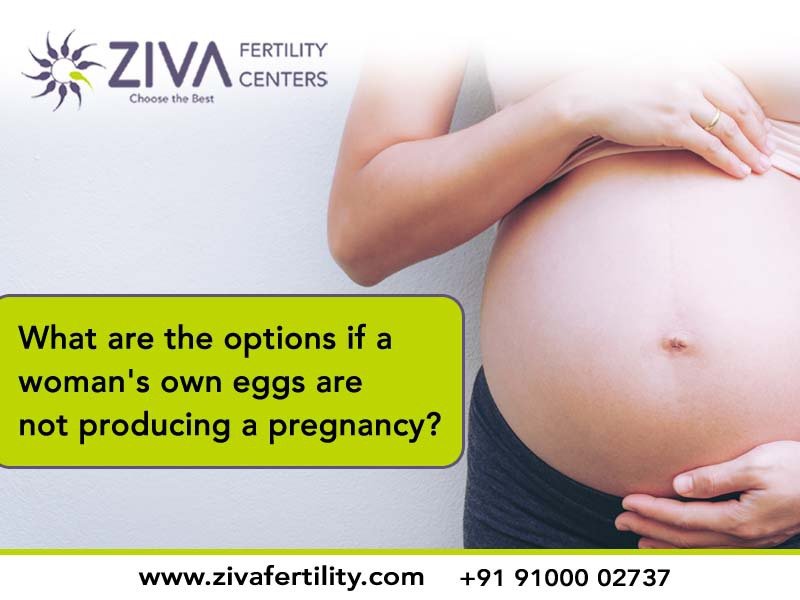Having a baby is a joyous occasion for the couple and their family and friends. Hence, naturally, a couple would like to welcome their bundle of joy as early as possible into their lives and this world. There was a time when any medical problem with either of the partners would seem like an end of the road in realizing their dreams of having a baby. There used to be social stigmas too around adoption, surrogacy etc. However, thanks to the advancement in modern medicine, a couple can opt for various medical treatments and conceive a baby biologically. Apart from this, acknowledging the changing landscape of society, a couple has many other ways to bring joy into their lives by means other than biological conception. Let us look at the options if a woman’s eggs are not producing a pregnancy?
Let us understand the basics of Ovulation.
Ovulation occurs around the 14th day of a 28-day menstrual cycle. It simply means the release of an egg from the ovary. Between the 10th and the 14th day, one and only one of the developing follicles forms a fully mature egg and is released around the 14th day. A woman conceives when a sperm cell joins the woman’s egg cell as it travels down one of the fallopian tubes from the ovary to the uterus.

Why are there any problems with the egg?
The quantity and the quality of eggs start to decline around 30 years of age, and it decreases rapidly after age 40. Apart from age, abnormalities in the ovaries can also cause such a decrease.
In cases of primary ovarian insufficiency, i.e., in premature menopause, the decrease in eggs starts earlier. This manifests as irregular menstrual periods or no periods.
How are when are problems with eggs diagnosed?
Your doctor usually recommends these tests in cases of:-
- If you are 35 or older
- Ever had an ovarian surgery
- If the response to fertility drugs is poor, especially those that stimulate the maturity and release of eggs.
Tests conducted:-
- Blood tests to measure the levels of follicle-stimulating antimüllerian hormones (AMH) are done since these hormones stimulate the release of eggs, i.e., ovulation. Estrogen levels are also measured.
- Ultrasonography to view and count the number of follicles that contain the eggs.
Increased levels of follicle-stimulating hormone and decreased levels of estrogen suggest a problem with the quality of eggs. A low level of antimüllerian hormone indicates that the number of follicles is less. If the number of follicles observed and counted during ultrasonography is also less, the chances of pregnancy even after an IVF is less. However, women can still get pregnant even if test results are abnormal.
What treatments are available for women with problems with eggs?
The female body is wondrous. Even after the age of 40, women can carry a baby. This is because the uterus is strong and can have a pregnancy despite the decline in the quality of eggs. Since there are chances of pregnancy, the following options can be very useful:-
Medication: Medication to treat ovulation problems includes clomiphene, letrozole (an aromatase inhibitor), and human gonadotropins.
Donor egg IVF: In the egg donation process, healthy eggs of another woman are fertilized with the sperm from the patient’s husband. The resultant embryos are transferred into the patient’s uterus. This process gives women the joy of being pregnant and a gift of parenthood to the couple.
Surrogacy: After the age of 50, more complications develop. There is a risk of high blood pressure, diabetes, premature delivery, cesarean section etc. In such cases, doctors recommend having a child by choosing a surrogate.
Egg freezing: This has become a common practice for women to freeze their eggs at a much younger age. So if they want to become pregnant at a later age, those frozen eggs may be used since pregnancy is based on the eggs’ age and not on the age of the uterus.

How can you be proactive about your fertility health?
If you are 30 years or below, try natural conception for a year before consulting a fertility specialist. However, if you crossed 40 years, it is best to consult a fertility specialist, get yourself evaluated at the start, and be realistic about your chances of conception.
It is evident by now that having problems with your eggs is not the end of the road. A couple can explore many options to enjoy the joys of parenthood. We at ZIVA fertility centers have years of experience in assisting women with egg problems. We have consistently delivered results. We also understand the emotional, social and economic challenges that couples face when going out of natural biological conception. Let us help you by contacting us at 91-9100002737, +91-9392834024 or email us at Info@zivafertility.com.
















